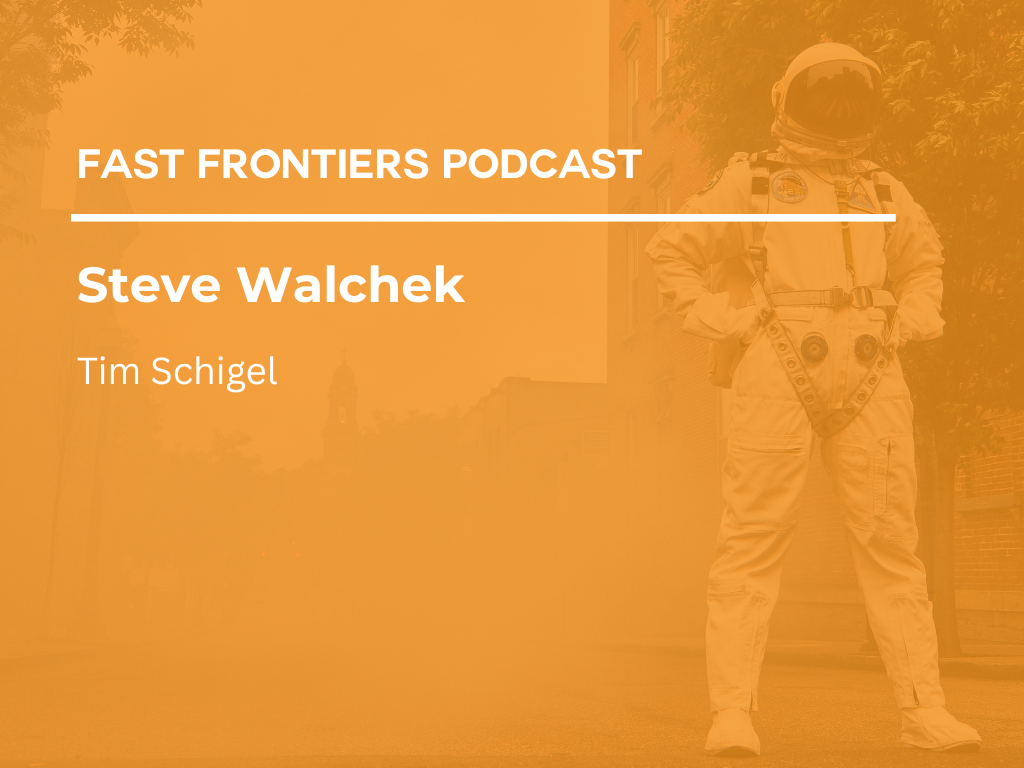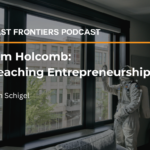I was thrilled to sit down with Steven Walcheck to record Episode 3 in Season 2 of Fast Frontiers. Steve is the Executive Vice President and Chief Innovation Officer at FIS, a rapidly growing corporation that covers frontier technology and financial transactions.
Steve is a self-professed entrepreneur who has been involved in the technology world serving in various capacities for at least 15 years. From founder to product manager, to business development and everything in between, Steve has seen (and done) it all.
One of the many great things about Steve is that his vast experience (which started very early on at the age of 20) has allowed him to know exactly what it takes to make an endeavor thrive.
“You know when you’re in a startup, you wear every hat, and I’ve had the good fortune of wearing every hat,” Steve explains of his hands-on approach that has clearly served him well.
Although Steve ended up selling the company, making “zero money” in the transaction, he is quick to point out the silver lining: he learned an awful lot in the experience and never looked back. In fact, his presence in the startup space has been substantial ever since. I have great respect for Steve for sharing that story.
“We did three other startups after that, which successfully exited via acquisition for a combined value of over $1 billion. So I’ve been in the startup space for a long time,” he explains.
So what key things has Steve learned en route to the startup success he has achieved today? One invaluable gem includes the characteristic of tenacity, an infusion of creativity, and a little bit of luck. Because let’s face it, it’s not always going to go your way.
With this in mind, Steve explains that “No matter what, if you’re operating and doing something new that’s going to change an industry, it’s going to be hard.” When this happens, Steve advises us that “keeping your head on straight” is paramount.
Steve then offers an analogy of a pilot to bring this idea home. Basically, when you are on a plane and hit some turbulence, do you want to be piloted by the flight officer who panics and grips the wheel with white knuckles in a panic, or do you want to be the pilot who remains calm, relaxed, and collected in the face of adversity?
Clearly, we all want to be led by the pilot who is confident and calm. As Steve explains it, you want to “be the pilot who’s getting on the horn and saying, ‘Ladies and gentlemen, a little bit of turbulence, no big deal. We’ll be on the ground in two hours.’”
Apart from adopting this calm, cool, and collected voice and learning how to lead through chaos, Steve points to the afore-mentioned tenacity as yet another invaluable asset to success: “It doesn’t matter if you’re a startup or a big company, [it] can be chaotic and hard. So tenacity is the big lesson that I’ve always taken away. [You’ve got to] remain tenacious, keep pushing, and take that resilience and kind of judo that momentum into opportunity.”
Steve then added, “Managed chaos is the best way I’ve heard it described.”
To hear more lessons for success from Steve, as well as his experience at Amazon, among other endeavors, head over to listen to the full podcast.



